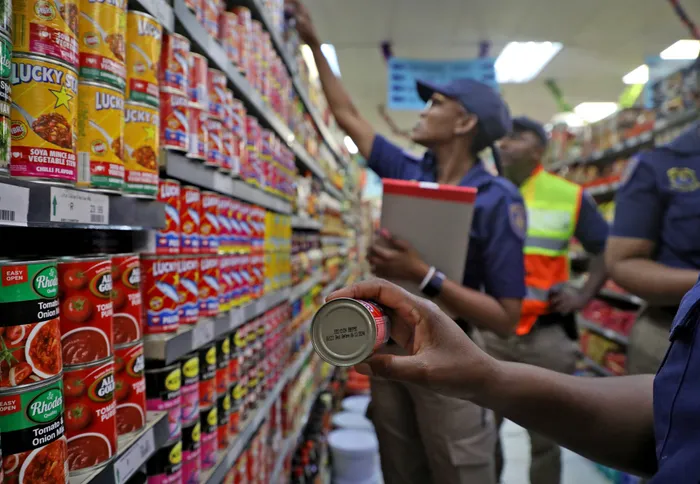Food safety inspections stepped up

The National Consumer Commission (NCC) has announced plans to intensify inspections of food outlets across the country, following the tragic deaths of six children in Soweto after they allegedly consumed food from a spaza shop. Picture: Oupa Mokoena / Independent Newspapers
The National Consumer Commission (NCC) has announced plans to intensify inspections of food outlets across the country, following the tragic deaths of six children in Soweto after they allegedly consumed food from a spaza shop.
The commission, working alongside multiple regulatory bodies, said it would be cracking down on businesses that fail to comply with the Consumer Protection Act (CPA) and other relevant laws.
The inspections come in the wake of increasing concerns over the safety of food being sold in informal retail outlets such as spaza shops, particularly in poorer communities.
The NCC said it had already begun inspections in Naledi, Soweto, and Buffalo City Municipality in the Eastern Cape, where several non-compliance issues were identified.
According to NCC spokesperson, Pheto Ntaba, these inspections were just the beginning, with more planned in other provinces including KwaZulu-Natal.
Ntaba explained that the NCC’s role is to monitor compliance with the CPA, focusing on ensuring that goods sold to consumers, especially food, are safe and of good quality.
“The NCC works with other regulators in the consumer protection space to monitor compliance with the CPA and other laws. Where the quality of goods, particularly food, is compromised, municipal health and environmental inspectors enforce their bylaws to remove unsafe goods from the shelves,” she said.
During the inspections in Soweto and East London, a number of violations were uncovered, she said.
In Naledi, the NCC found goods past their sell-by or use-by dates, products with unclear labelling, and items labelled in foreign languages with no information about the ingredients.
Some of the non-compliant items included baby food, snacks, sweets, noodles and juices.
“The sale of these items pose a risk to consumer health,” Ntaba said, raising concerns about the impact of expired or improperly labelled food on vulnerable populations, such as children.
In the Eastern Cape, similar issues were found, including suppliers selling goods without trade descriptions, such as the specific name of meat products.
In some cases, suppliers were not issuing proper invoices or sales records, and were charging exorbitant fees on cancelled lay-bys.
While the recent inspections have focused on Soweto and East London, Ntaba confirmed that more would take place in the coming weeks.
“We are yet to conduct inspections in KwaZulu-Natal, Mpumalanga, and the Free State as per the NCC’s plans,” she said.
These inspections will target both formal and informal retail outlets, with a focus on ensuring compliance with food safety standards.
The commission said its efforts were part of a broader collaboration with other governmental agencies, including the Department of Home Affairs, municipal health inspectors, the South African Police Service (SAPS), and advocacy groups.
Ntaba highlighted that the NCC worked closely with these bodies to ensure that any business found in violation of food safety laws faces strict penalties.
The NCC also called on the public to play a proactive role in reporting businesses that sell unsafe or non-compliant goods.
“Consumers are urged to inspect goods before purchasing. Where goods pose or have the potential to pose a risk, they must inform the regulators,” said Ntaba.
In addition to issuing compliance notices, the NCC can order suppliers to recall unsafe goods and can refer them to the National Consumer Tribunal for prosecution.
Offending businesses may face administrative penalties of up to R1million or 10% of their turnover.
“Every consumer has the right to goods that are of good quality, safe and comply with applicable standards.”
The Mercury
Related Topics: